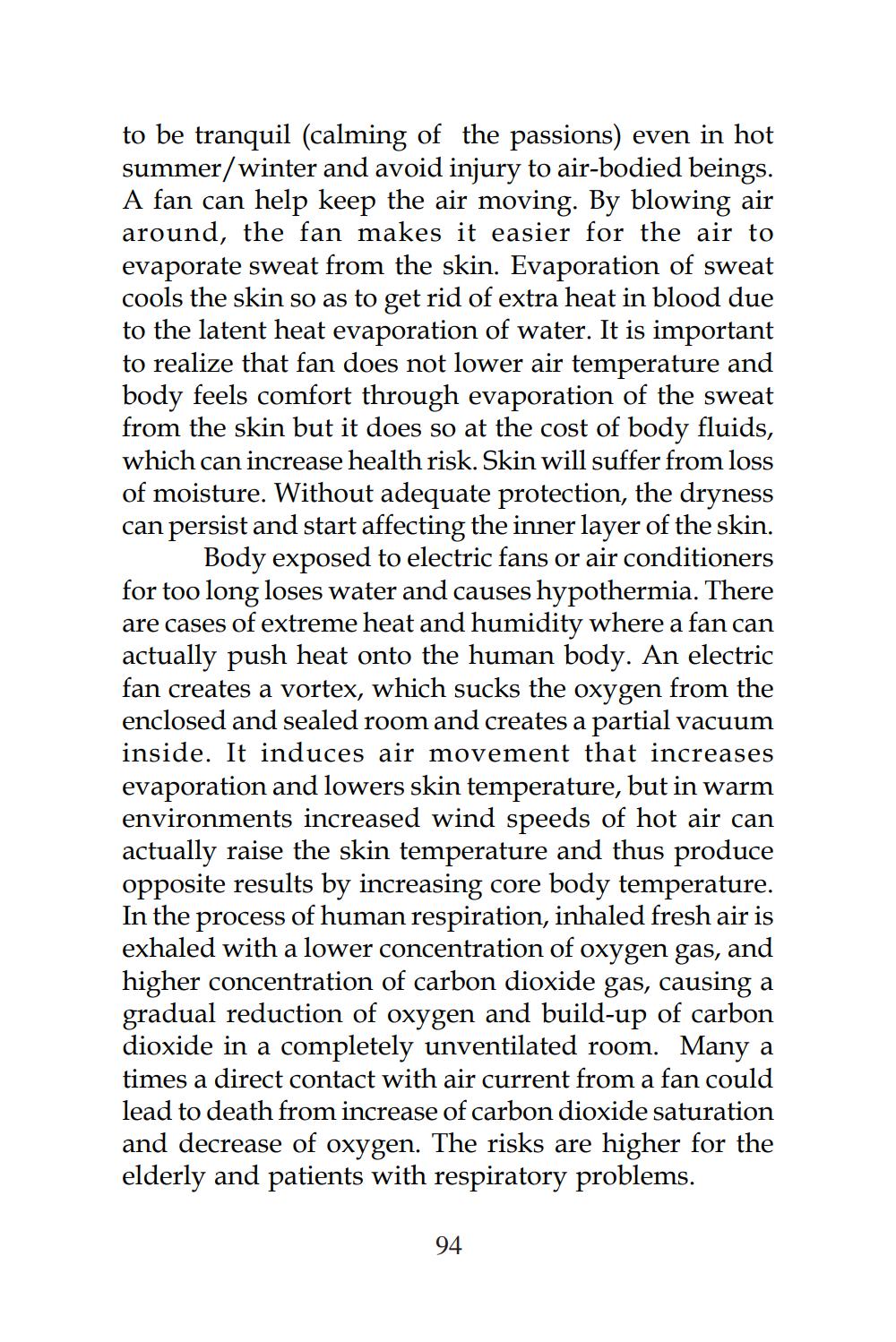________________
to be tranquil (calming of the passions) even in hot summer/winter and avoid injury to air-bodied beings. A fan can help keep the air moving. By blowing air around, the fan makes it easier for the air to evaporate sweat from the skin. Evaporation of sweat cools the skin so as to get rid of extra heat in blood due to the latent heat evaporation of water. It is important to realize that fan does not lower air temperature and body feels comfort through evaporation of the sweat from the skin but it does so at the cost of body fluids, which can increase health risk. Skin will suffer from loss of moisture. Without adequate protection, the dryness can persist and start affecting the inner layer of the skin.
Body exposed to electric fans or air conditioners for too long loses water and causes hypothermia. There are cases of extreme heat and humidity where a fan can actually push heat onto the human body. An electric fan creates a vortex, which sucks the oxygen from the enclosed and sealed room and creates a partial vacuum inside. It induces air movement that increases evaporation and lowers skin temperature, but in warm environments increased wind speeds of hot air can actually raise the skin temperature and thus produce opposite results by increasing core body temperature. In the process of human respiration, inhaled fresh air is exhaled with a lower concentration of oxygen gas, and higher concentration of carbon dioxide gas, causing a gradual reduction of oxygen and build-up of carbon dioxide in a completely unventilated room. Many a times a direct contact with air current from a fan could lead to death from increase of carbon dioxide saturation and decrease of oxygen. The risks are higher for the elderly and patients with respiratory problems.
94




